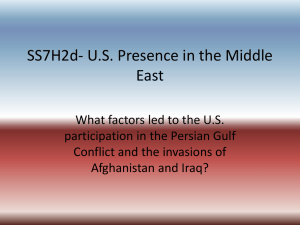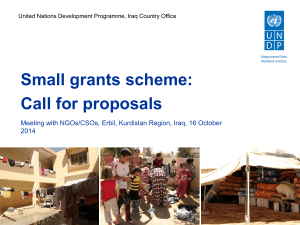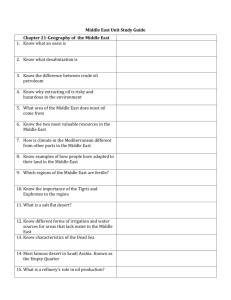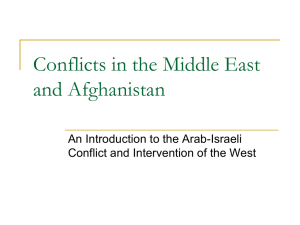Laura Browder - Historians Against the War
advertisement
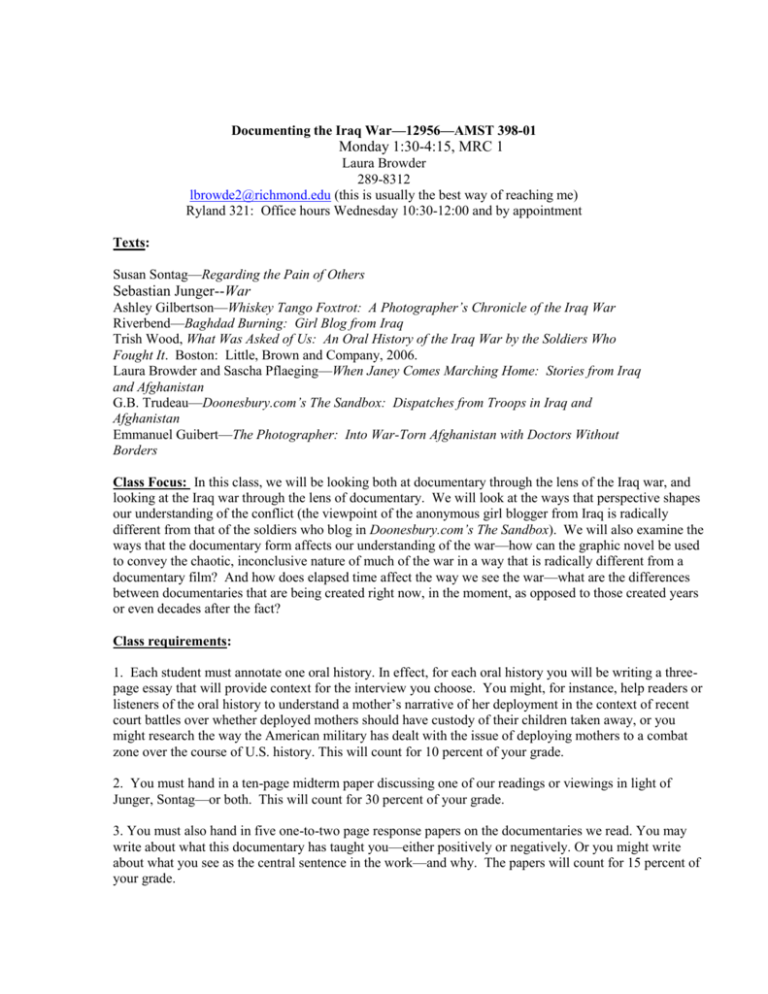
Documenting the Iraq War—12956—AMST 398-01 Monday 1:30-4:15, MRC 1 Laura Browder 289-8312 lbrowde2@richmond.edu (this is usually the best way of reaching me) Ryland 321: Office hours Wednesday 10:30-12:00 and by appointment Texts: Susan Sontag—Regarding the Pain of Others Sebastian Junger--War Ashley Gilbertson—Whiskey Tango Foxtrot: A Photographer’s Chronicle of the Iraq War Riverbend—Baghdad Burning: Girl Blog from Iraq Trish Wood, What Was Asked of Us: An Oral History of the Iraq War by the Soldiers Who Fought It. Boston: Little, Brown and Company, 2006. Laura Browder and Sascha Pflaeging—When Janey Comes Marching Home: Stories from Iraq and Afghanistan G.B. Trudeau—Doonesbury.com’s The Sandbox: Dispatches from Troops in Iraq and Afghanistan Emmanuel Guibert—The Photographer: Into War-Torn Afghanistan with Doctors Without Borders Class Focus: In this class, we will be looking both at documentary through the lens of the Iraq war, and looking at the Iraq war through the lens of documentary. We will look at the ways that perspective shapes our understanding of the conflict (the viewpoint of the anonymous girl blogger from Iraq is radically different from that of the soldiers who blog in Doonesbury.com’s The Sandbox). We will also examine the ways that the documentary form affects our understanding of the war—how can the graphic novel be used to convey the chaotic, inconclusive nature of much of the war in a way that is radically different from a documentary film? And how does elapsed time affect the way we see the war—what are the differences between documentaries that are being created right now, in the moment, as opposed to those created years or even decades after the fact? Class requirements: 1. Each student must annotate one oral history. In effect, for each oral history you will be writing a threepage essay that will provide context for the interview you choose. You might, for instance, help readers or listeners of the oral history to understand a mother’s narrative of her deployment in the context of recent court battles over whether deployed mothers should have custody of their children taken away, or you might research the way the American military has dealt with the issue of deploying mothers to a combat zone over the course of U.S. history. This will count for 10 percent of your grade. 2. You must hand in a ten-page midterm paper discussing one of our readings or viewings in light of Junger, Sontag—or both. This will count for 30 percent of your grade. 3. You must also hand in five one-to-two page response papers on the documentaries we read. You may write about what this documentary has taught you—either positively or negatively. Or you might write about what you see as the central sentence in the work—and why. The papers will count for 15 percent of your grade. 4. You will create a storyboard of a documentary based on found footage. You can also lift footage from YouTube and other sources. You can also choose to edit a book of documentary photographs and write a ten-page introduction to the work. If you choose the film assignment, you will also write a three-five page paper explaining what story you are telling—and why it is important. I am very open to your proposals for other kinds of final projects—graphic novels, for example. This will count for 30 percent of your grade. The rest of your grade (15 percent) is based on class participation. Attendance Policy: You will be allowed two absences over the course of the semester. Use them wisely— for serious illnesses or other crises. After that, your grade will go down five percent for each absence. Two latenesses count as an absence. If you intend to observe any religious holidays that will interfere with your class participation, please inform me by January 16. Office Hours: My office hours this semester are on Wednesdays 10:30-12:00. You do not need an appointment. If you cannot make these hours, please just let me know, and we will arrange another time. Email me at any time. I am always happy to talk about paper ideas, thoughts on the reading, writing blocks, etc. I strongly encourage you to take your papers to the UR Writing Center. Student tutors offer free writing help to any UR student, and they can help you at many different stages of the writing process, including rough drafts, final drafts, and revisions. To make an appointment, visit http://writing.richmond.edu. The Center is open Monday-Thursday in the afternoons and evenings, and Sunday evenings as well. You can also go to the Writer’s Web section of the web site at any time for helpful on-line writing guides. January 9: Introduction. Visit painter Matthew Mitchell’s website: http://www.100facesofwarexperience.org/portrait-gallery/ and look through the selection of portraits. Visit http://www.designboom.com/weblog/cat/10/view/18247/claire-felicie-here-are-theyoung-men-marked-interview.html January 16: War. Response paper due. January 23: Regarding the Pain of Others. Response paper due. Class presentation: find an Iraq or Afghanistan war photograph. Present to the class: how do you read this photograph in light of Sontag’s work? Why did you choose this photograph? What do you think are its most important features? Can you find material on the reception of the photograph? (You may want to look at the “comments” section if it appeared on a newspaper’s or magazine’s website.) January 30: Whiskey Tango Foxtrot: A Photographer’s Chronicle of the Iraq War. Response paper due. In-class editing assignment: re-edit this book to tell a different story. February 6: Gunner Palace (in-class film). February 13: Doonesbury.com’s The Sandbox: Dispatches from Troops in Iraq and Afghanistan. Response paper due. In-class viewing: The Marlboro Marine, by Luis Sinco. February 20: Baghdad Burning: Girl Blog from Iraq. Response paper due. February 27: When Janey Comes Marching Home. In-class oral history editing assignment. March 12: Class visit from Matt Mitchell (100 Faces of War). Matt Mitchell lecture. March 19: What Was Asked of Us: An Oral History of the Iraq War by the Soldiers Who Fought It. In-class viewing: Ian Fisher: American Soldier, by Craig F. Walker and staff of the Denver Post. March 26: The Photographer: Into War-Torn Afghanistan with Doctors Without Borders. Annotated oral histories due. April 2: Alive Day Memories (in-class film). April 9: Standard Operating Procedure (in-class film). Paper due. April 16: Documentary workshop: troubleshooting your projects.


